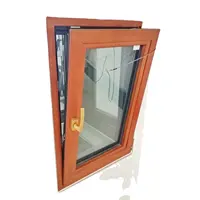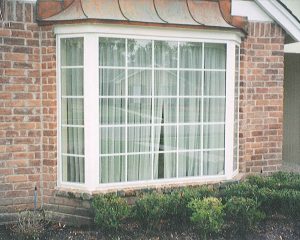Composite Windows: Weighing the Pros and Cons for Your Home Renovation
In the quest for replacement windows for your home, composite windows are often heralded as the gold standard, combining the best of both worlds from various materials. Known for their durability, energy efficiency, and aesthetics, they indeed offer many advantages. However, like all products, composite windows have their drawbacks. This article sheds light on the cons of composite windows to provide a balanced perspective for homeowners navigating the complex world of window replacement.

High Upfront Cost
Contents
One of the most significant disadvantages associated with composite windows is their high upfront cost. Compared to alternatives like vinyl and aluminum, composite windows are at the higher end of the price spectrum. This cost is driven up by the sophisticated combination of materials and manufacturing processes involved in creating these windows. While they may offer long-term value due to their durability and energy efficiency, the initial investment can be a deterrent for homeowners on a tight budget.

Limited Customizability
Composite windows are made of a combination of materials, often including wood, vinyl, or resin and fiberglass. While this blend offers strength and stability, it limits the options for customization. Unlike wooden windows, composite windows can’t be painted or stained to match your evolving decor. This limitation might not be a concern for some homeowners, but for those who like to refresh their home’s look periodically, it’s a noteworthy disadvantage.
More Complex Installation
Composite windows require expert installation due to the complex nature of the material used. The composite material doesn’t have the flexibility of vinyl, nor the simple, straightforward design of wood or aluminum. Consequently, the installation process can take longer, which may translate into higher labor costs.
Limited Availability
Composite windows, despite their rising popularity, are not as readily available as other types of windows. While vinyl, wood, and aluminum windows are sold by almost all window dealers, not every supplier offers composite windows. This limited availability can make it more challenging for homeowners to find the right composite windows for their homes, and it may even impact the speed at which they can be delivered and installed.
Lifespan Vs. Cost Consideration
While composite windows are more durable than most window materials, they are also more expensive. Homeowners must weigh this longevity against the higher upfront cost. For example, the lifespan of UPVC units or aluminum windows, which are generally less expensive than composite windows, might be sufficient for a homeowner’s needs. The decision largely depends on the homeowner’s budget, long-term plans, and how much value they place on the other benefits of composite windows.
Conclusion
When choosing new windows for your home, understanding the pros and cons of composite windows is essential. Despite the disadvantages listed, it’s important to remember that composite windows still offer many benefits, including durability, energy efficiency, and aesthetics.
However, the decision should never be one-size-fits-all. It should factor in personal preferences, the architectural style of your home, the climate in your region, and of course, your budget. Consulting with a knowledgeable window provider can be helpful in navigating these considerations and making the best choice for your home.

